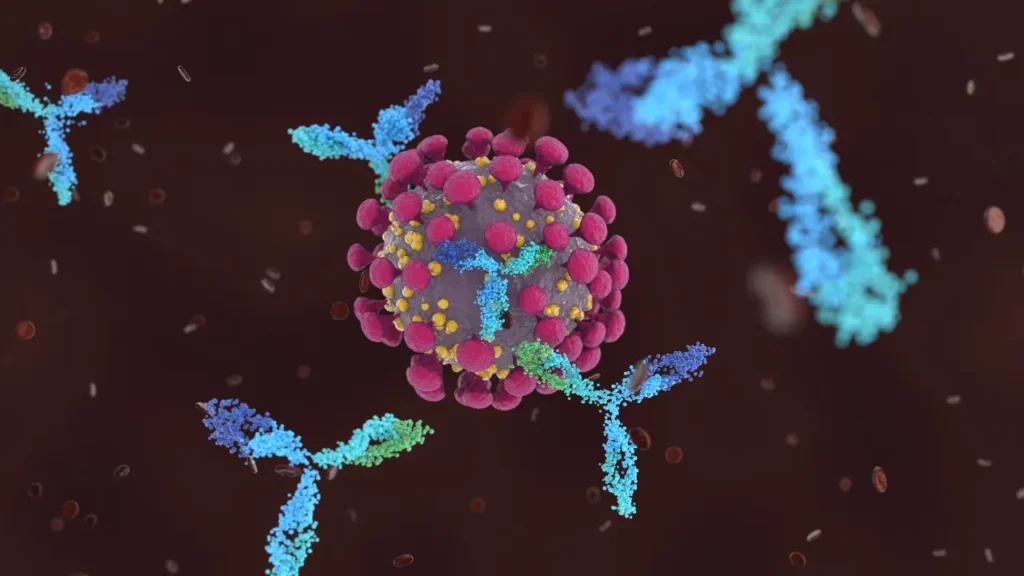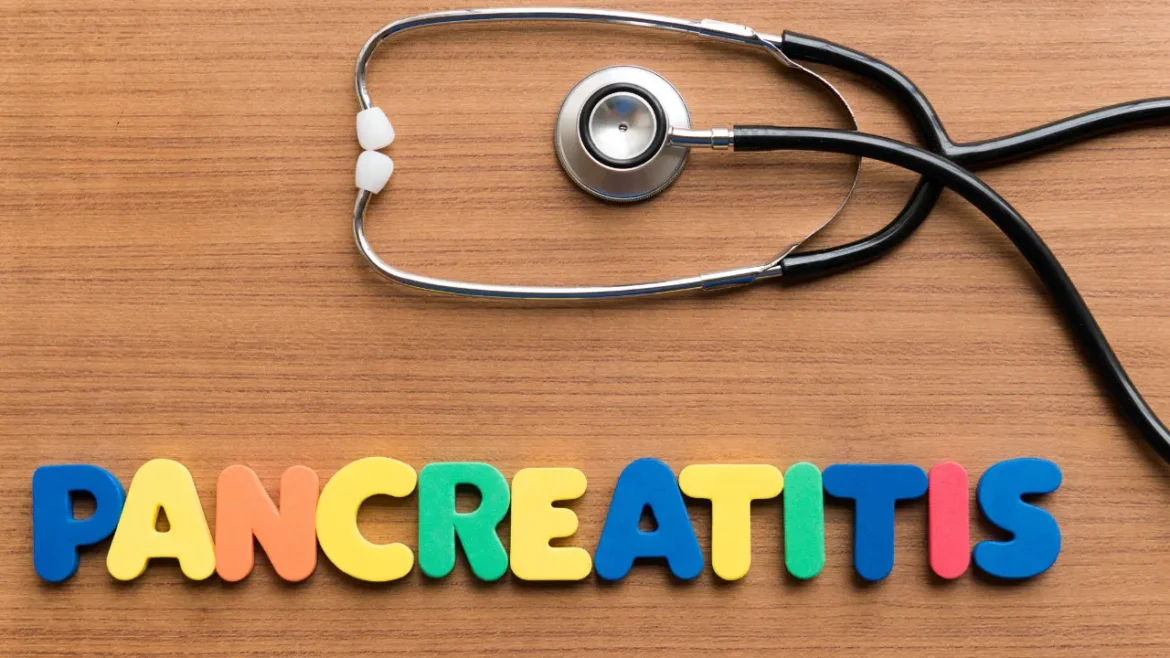Description
An uncommon kind of chronic pancreatitis called Autoimmune pancreatitis (AIP) is pancreatic inflammation brought on by an inflammatory reaction. AIP is caused by the body’s immune system mistakenly targeting healthy pancreatic tissues. Furthermore, AIP is unlike other kinds of pancreatitis, in so far as other kinds are frequently linked to alcoholism or gallstones. This immunological response of AIP causes numerous clinical symptoms, such as fibrosis (scarring), inflammation, and potential blockage in the pancreatic ducts.
Since the early 21st century, when AIP was initially identified as a distinct disorder, recognition and comprehension of it have greatly increased. There are two primary AIP subtypes that are as follows:
Type 1 AIP: About 70–80% of the instances of AIP are classified as this variant. Type 1 AIP frequently coexists with other autoimmune diseases like Autoimmune Hepatitis, Inflammatory Bowel disease (IBD), and Primary Sclerosing Cholangitis (PSC). IgG4-positive plasma cells infiltrate the afflicted pancreatic tissues, and serum IgG4 levels (an immunoglobulin associated with the immunological response) are high. Furthermore, Type 1 AIP might impact organs other than the pancreas, leading to an all-encompassing syndrome, called IgG4-related disease.
Type 2 AIP: The final 20–30% of AIP cases are this kind. Type 2 AIP, different from Type 1 AIP, does not result in IgG4-related illness or high serum IgG4 levels. Instead, it is distinguished by the existence of other autoantibodies, like antibodies against carbonic anhydrase II and lactoferrin. The pancreas is often the sole organ affected by type 2 AIP; other organs are rarely involved.
You May Also Like:
5 GREAT REASONS TO TRY APIGENIN FOR STRESS RELIEF
5 GREAT WAYS TO REDUCE STRESS AND ELEVATE MOOD WITHOUT ALCOHOL
Autoimmune pancreatitis (AIP): Description, Causes, And Treatment Protocol is an original (HealthXWire) article.
Possible Causes
The consensus reached among relevant researchers indicates that a mix of environmental, genetic, and immunological variables may contribute to the development of Autoimmune pancreatitis (AIP), while its precise causes are yet unknown. The following list includes some potential root causes and risk factors for AIP:
Immune System Dysregulation: According to current accepted theories, AIP is caused by a disordered immune reaction wherein the immune system of the body is unable to discriminate between the healthy tissues of the pancreas and foreign objects. As such, it hunts down and destroys pancreatic cells, causing inflammation.
Genetic Predisposition: The prevalence of AIP may be influenced by genetic factors. Individuals may be more prone to autoimmune illnesses, like AIP, if they carry particular genes. However, particular genes linked to AIP have not yet been conclusively identified.
Environmental Triggers: Individuals with a hereditary predisposition to AIP may experience environmental triggers or exacerbations. Potential causes of autoimmunity include viral infections, contact with specific poisons or chemicals, and additional environmental factors that stimulate the immune system.
Associated Autoimmune Diseases: Inflammatory Bowel Disease (IBD), Primary Sclerosing Cholangitis (PSC), and Sjögren’s syndrome are among the autoimmune diseases that are frequently linked to AIP. The coexistence of these autoimmune diseases reveal common immunological underpinnings.
Immunological Dysfunction in the Pancreas: AIP has potential to cause the immune system’s cytokines and particular immune cells to become dysregulated. Dysregulation like this can harm tissue and cause chronic inflammation.
Inflammatory Reaction to Infection or Injury: AIP does occasionally develop as a result of a pancreatic injury or infection. Damaged pancreatic tissues may be incorrectly identified by the immune system as foreign, triggering an autoimmune response.
Exacerbating and Mitigating Factors
Autoimmune pancreatitis (AIP) development, progression, and therapy are significantly influenced by aggravating and mitigating variables. The primary AIP aggravating and mitigating factors are listed below:
Exacerbating Factors:
Alcohol Consumption: Abuse of alcohol can make AIP worse and raise the possibility of complications. Practicing alcohol abstinence is frequently recommended to AIP patients by relevant medical specialists in order to minimize inflammation and stop additional pancreatic damage.
Smoking: The illness course of AIP is known to be worsened by smoking, which is a substantial risk factor for the condition. According to studies, smokers with AIP are more likely to experience relapses and experience more severe symptoms.
Obesity: Obesity may worsen the effects of the condition and has been linked to a higher risk of contracting AIP. Obesity increases the probability of chronic inflammation and alterations to the metabolism, which may hasten the development of AIP.
Triggers of Inflammation and Infections: In those who are sensitive, infections or various inflammatory stimuli may start or aggravate AIP. AIP and other autoimmune illnesses, including those caused by viruses, have been related to certain inflammatory and viral infections.
Delays in Diagnosis: Initially, AIP is frequently misdiagnosed as pancreatic cancer or another pancreatic condition. Unfortunate delays in identification and treatment might make the condition worse and cause consequences.
Associated Autoimmune Diseases: AIP frequently co-occurs with other autoimmune diseases including Sjögren’s syndrome, IBD, and PSC. The treatment and progression of AIP may be hampered by these concomitant autoimmune disorders.
Mitigating Factors:
Lifestyle Modifications: A healthy lifestyle that includes frequent exercise and a balanced diet lessen the effects of AIP. Overall health can be enhanced by eating correctly, not smoking, and abstaining from excessive alcohol use.
Glucocorticoid Therapy: The cornerstone of therapy for AIP is glucocorticoids like prednisone. Glucocorticoids aid in suppressing the autoimmune reaction and lowering inflammation, which improve symptoms and induce disease remission.
Immunomodulatory Drugs: Immunomodulatory medications like mycophenolate mofetil or azathioprine may be utilized as adjuvant therapy in situations of steroid reliance or refractory AIP to sustain remission and lessen the requirement for high-dose steroids.
Early Diagnosis and Therapy: The management of AIP depends heavily on early diagnosis and timely therapy implementation. Early intervention can reduce inflammation, reduce problems, and enhance patient outcomes.
Patient Support and Education: When patients are informed about their disease, the course of their treatment, and self-management techniques, they are better equipped to take an active role in their healthcare and make wise health decisions.
Close Observation and Follow-up: To gauge treatment response and quickly handle potential consequences, routine assessment and follow-up consultations with healthcare professionals are crucial.

Standard Treatment Protocol
Inflammation reduction, inflammatory response management, and symptom management are all goals of the typical AIP treatment program normally entail the following actions:
Diagnosis and Evaluation: AIP must be diagnosed quickly and correctly for the greatest likelihood of successful treatment and survival. A clinical evaluation, imaging tests like an MRI, CT scan, or endoscopic ultrasonography, and histological analysis of pancreatic tissue removed during a biopsy or surgery are frequently performed and combined in this process.
Observation and Follow-up: To evaluate therapy effectiveness and control potential glucocorticoid adverse effects, routine monitoring is required. Usually, follow-up visits involve blood tests, imaging exams, and clinical evaluations.
Glucocorticoids: The majority of treatment for AIP is glucocorticoids, like prednisone or prednisolone. These drugs reduce pancreatic inflammation and inhibit the immune system. Normally, patients are prescribed these drugs at starting out at high doses and then progressively are weaned off over a period of weeks to months.
Maintenance Therapy: To avoid a disease relapse, patients may occasionally need long-term maintenance medication with low-dose glucocorticoids. Maintenance therapy’s length and dosage are decided upon individually.
Management of Complications: Strictures of the biliary system, pancreatic ducts, and obstructive jaundice are some of the problems that can arise with AIP. These issues could necessitate additional treatments, like surgical procedures or endoscopic stenting.


Treatment Options
A number of adjunct treatment methods have been researched to supplement traditional care along with the usual treatment protocol. Various complementary therapies include:
Immunomodulatory Drugs: Other immunomodulatory drugs may be tried in situations of steroid dependency or refractory AIP. Certain patients’ inflammation has been reduced due to medications like mycophenolate mofetil and azathioprine that demonstrate promise in doing so.
Nutritional Support: AIP can cause malabsorption and vitamin deficits; thus, nutritional therapy is crucial for managing the condition. To aid with digestion and nutrient absorption, pancreatic enzyme replacement therapy (PERT) can be administered. In addition, because fat absorption is compromised, supplementation of the fat-soluble vitamins A, E, D, and K might be required.
Antioxidant-Rich Foods: Consuming foods high in antioxidants, like fruits and vegetables, could assist with reducing inflammation and oxidative stress in the pancreas. Antioxidants can be found in abundance in leafy greens, berries, and colorful vegetables.
Herbal Remedies: Ginger and turmeric have demonstrated promise in lowering inflammation since they both contain the anti-inflammatory compound curcumin. However, as they could interfere with drugs or have negative consequences, their usage should be performed with caution.
Mind-Body Therapies: AIP patients may benefit from stress management strategies including yoga, mindfulness meditation, and relaxation exercises since they enhance overall wellbeing.
Pain Management: AIP-related minor pain can be managed with over-the-counter painkillers like acetaminophen. Non-steroidal anti-inflammatory medicines (NSAIDs) should be used cautiously, though, as they have the potential to make gastrointestinal problems worse.
When used in conjunction with the recommended course of treatment for Autoimmune pancreatitis (AIP), adjunctive therapies may be advantageous. Potential treatments include immunomodulatory medications, dietary supplements, pain relievers, foods high in antioxidants, and some herbal medicines. The effectiveness, safety, and ideal dosages of these complementary therapies for AIP must still be determined by additional research. To develop a specialized treatment plan that takes into account their particular needs and medical history, patients should always collaborate closely with their medical advisors.


Conclusion:
Autoimmune pancreatitis can be quite severe if left untreated or mismanaged. There are multiple subtypes of disease, more than the ones listed and explained in this article. Luckily, although the consequences of this disease can be acutely significant, since recently being formally designated as a unique disorder, treatment plans, both standard and alternative, are available. This disease can be managed well with treatment and supportive care.
Engaging in basic, but important, activities, such as regular exercise, adequate hydration, and a balanced diet can mitigate the effects when partnered with a traditional treatment protocol administered by qualified health care professionals. In addition to the various therapies available, consistent follow ups and communication with doctors are vital for those with this diagnosis. Please be careful and safe as you learn and make decisions regarding your options for living with or caring for someone with Autoimmune pancreatitis.


References:
1. “Autoimmune Pancreatitis.” Retrieved from: https://www.ncbi.nlm.nih.gov/books/NBK560769/
2. “Autoimmune pancreatitis.” Retrieved from: https://www.mayoclinic.org/diseases-conditions/autoimmune-pancreatitis/symptoms-causes/syc-20369800
3. “Autoimmune pancreatitis: Clinical manifestations and diagnosis.” Retrieved from: https://www.uptodate.com/contents/autoimmune-pancreatitis-clinical-manifestations-and-diagnosis
4. “Autoimmune Pancreatitis.” Retrieved from: https://my.clevelandclinic.org/health/diseases/17936-autoimmune-pancreatitis
Important Note: The information contained in this article is for general informational purposes only, and should not be construed as health or medical advice, nor is it intended to diagnose, prevent, treat, or cure any disease or health condition. Before embarking on any diet, fitness regimen, or program of nutritional supplementation, it is advisable to consult your healthcare professional in order to determine its safety and probable efficacy in terms of your individual state of health.
Regarding Nutritional Supplements Or Other Non-Prescription Health Products: If any nutritional supplements or other non-prescription health products are mentioned in the foregoing article, any claims or statements made about them have not been evaluated by the U.S. Food and Drug Administration, and such nutritional supplements or other health products are not intended to diagnose, treat, cure, or prevent any disease.
Table of Contents


